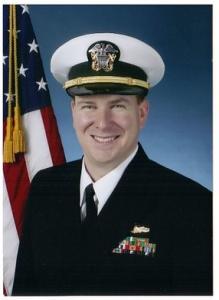Veterans Help Veterans Overcome Their Struggles With Addiction at Confidential Recovery
At a San Diego-based intensive outpatient drug rehab, Navy Veteran Jay Wylie is a ‘Veteran-in-recovery’ himself who leads support groups for Veterans.
SAN DIEGO, CA, UNITED STATES, November 14, 2023 /EINPresswire.com/ -- The U.S. relies on its military service members to keep its citizens safe. But Veterans are impacted by addiction in higher numbers than non-Veterans. When you consider the fact that in California there are approximately 20 fatal overdoses a day, and San Diego is home to more than 200,000 Veterans (who make up 9 percent of the San Diego population), it’s clear that there is a need for addiction treatment for veterans.
How Confidential Recovery Can Help
One difficulty that Veterans face when seeking help is relating their experiences to those who haven’t served in the military. Even the most empathetic civilian counselor will fail to understand the conditioning that comes with years of military service.
This is one way that Confidential Recovery differs from most treatment facilities. This San Diego-based intensive outpatient drug rehab is led by Navy Veteran Jay Wylie, a ‘Veteran-in-recovery’ himself who brings a passion for helping others.
The support for Veterans at Confidential Recovery doesn't stop there. CEO and Founder Scott H. Silverman has worked with Jay to craft a flexible addiction recovery program to meet the needs of Veterans, first responders, executives, and other adults who are in recovery. Confidential Recovery was built around the idea that San Diego professionals have busy lives that can’t grind to a halt to make time for their recovery program. Confidential Recovery has day and night sessions, including weekends, and works closely with participants to meet treatment needs on their schedule.
Why Reaching Out Is So Difficult for Veterans
What makes the Veteran population so vulnerable to addiction, and what is being done to support them in our local community?
Addiction, whether opiates, alcohol, or other behaviors and substances, is a huge struggle for many people. Recovery is often a life-long journey, and addiction takes countless lives each year in the United States alone. Seeking support for addiction and mental health is difficult for most people, but Veterans face additional hurdles when seeking help.
Stigma and Psychological Roadblocks
Those in the military are ingrained with the warrior ethos and are taught that emotions are weakness. Many Veterans view seeking help as a form of failure and prefer to suppress their problems or self-medicate to manage the symptoms (often resulting in worsening health and addiction issues). Consequently, the issues remain untreated.
Psychological Distress and Chronic Injury
Veterans often finish their military service with undiagnosed, untreated mental health issues. These include PTSD (post-traumatic stress disorder), depression, anxiety, and more. When faced with trauma and mental health problems, many veterans turn to self-medication in the form of substance abuse or alcohol. Self-medication can often lead to addiction, as evidenced by the fact that one in ten United States Veterans reports having a substance abuse disorder.
Additionally, military service is incredibly physically demanding. Veterans often end their service with chronic physical injuries, such as nerve damage, traumatic brain injuries, hearing loss, and other ailments. Those struggling with chronic physical injuries are too frequently prescribed opiate medications to manage the symptoms. These medications can (and often do) lead to opioid abuse and dependence. The United States is in the middle of a devastating opioid epidemic largely because of those with chronic pain who are prescribed highly addictive medications.
Many Veterans fail to seek help because the fear of living with chronic pain or unmedicated mental health issues is so great. This fear can leave Veterans trapped in a cycle of addiction and isolation for too long.
Lack of Resources
Many federal Veteran Assistance programs have poor reputations, long waitlists, or are generally understaffed. Many Veterans complain that medical personnel are difficult to connect with, and they report feeling unheard or rushed through their appointments. This leaves many Veterans feeling abandoned after their years of service and jaded to the whole notion of reaching out.
Reach Out to Confidential Recovery Today
There is hope for Veterans looking to start their addiction recovery journey. If you are in California, contact Confidential Recovery at (619) 452–1200 or by visiting https://www.confidentialrecovery.com/ for more information. All phone calls are confidential, and the staff is trained to answer any questions you may have about the services provided.
Jay Wylie
Confidential Recovery
+1 619-452-1200
email us here
Visit us on social media:
Facebook
Legal Disclaimer:
EIN Presswire provides this news content "as is" without warranty of any kind. We do not accept any responsibility or liability for the accuracy, content, images, videos, licenses, completeness, legality, or reliability of the information contained in this article. If you have any complaints or copyright issues related to this article, kindly contact the author above.

